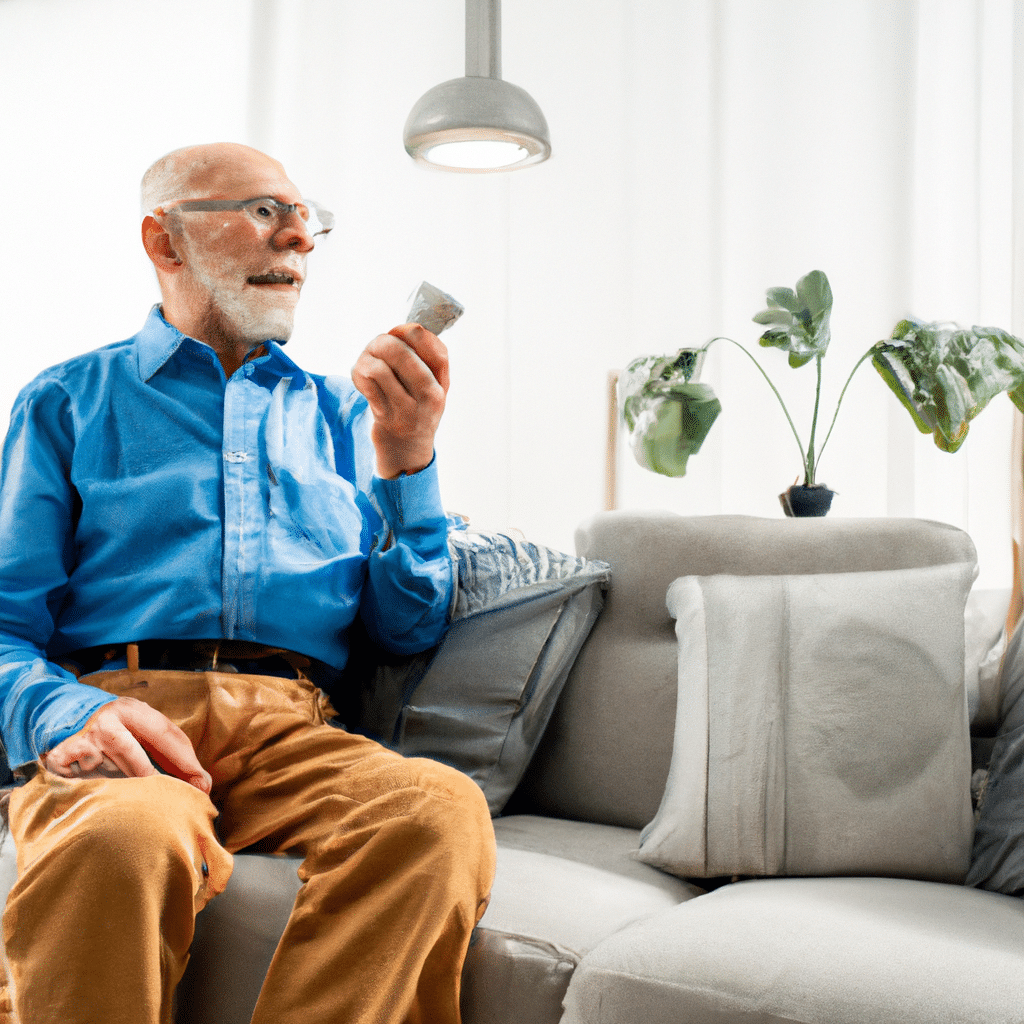As we age, our bodies and minds change, making it difficult to carry out daily activities that we once took for granted. For seniors, staying independent and living in their homes can be a challenge, but with the advent of smart home technology, aging in place is becoming more achievable than ever before. In this article, we will explore the various ways in which smart home technology can assist seniors in living independently, comfortably, and safely.

Smart Home Technology: What is it?
Smart home technology refers to the integration of various devices, appliances, and systems in a home that can be controlled and monitored remotely through a smartphone, tablet, or computer. These devices communicate with each other through the internet and can be programmed to perform specific tasks or routines automatically. Smart home technology can help seniors perform daily tasks, monitor their health, and stay connected with their loved ones and caregivers.
Smart Home Technology: Benefits for Seniors
Smart home technology can provide numerous benefits for seniors, including:
- Increased Safety and Security
One of the most significant advantages of smart home technology is improved safety and security. Smart home devices can monitor homes for intruders, fire, smoke, and carbon monoxide, and alert seniors and emergency services when necessary. Smart locks and security cameras can also provide seniors with peace of mind by allowing them to monitor their homes remotely.
- Improved Accessibility
Smart home technology can help seniors with mobility issues carry out daily tasks more easily. For example, smart lights can be programmed to turn on automatically when someone enters a room, eliminating the need for seniors to fumble for light switches in the dark. Smart thermostats can also be controlled remotely, ensuring that seniors always have a comfortable and safe living environment.
- Improved Health and Wellness
Smart home technology can assist seniors in monitoring and managing their health and wellness. For example, smart scales can track weight and BMI, while smart blood pressure monitors can measure blood pressure and heart rate. Smart home technology can also remind seniors to take their medication or attend doctor appointments, improving their overall health outcomes.
- Increased Social Connection
Smart home technology can help seniors stay connected with their loved ones and caregivers. Video conferencing apps can allow seniors to communicate face-to-face with family and friends, while smart speakers can provide entertainment and companionship. Smart home technology can also alert caregivers if something is wrong, allowing them to respond quickly and appropriately.
Smart Home Technology: Examples
There are numerous examples of smart home technology that can assist seniors in living independently, comfortably, and safely. Here are a few of the most popular types:
- Smart Lights
Smart lights can be programmed to turn on and off automatically, eliminating the need for seniors to fumble for light switches in the dark. They can also be controlled remotely, allowing seniors to turn lights on and off from their smartphones or tablets.
- Smart Thermostats
Smart thermostats can be programmed to regulate the temperature of a home automatically, ensuring that seniors always have a comfortable and safe living environment. They can also be controlled remotely, allowing seniors to adjust the temperature from their smartphones or tablets.
- Smart Locks
Smart locks can be controlled remotely, allowing seniors to lock and unlock their doors from their smartphones or tablets. They can also be programmed to unlock automatically when someone enters the home, eliminating the need for seniors to fumble with keys.
- Smart Cameras
Smart cameras can monitor homes for intruders, fire, smoke, and carbon monoxide, alerting seniors and emergency services when necessary. They can also provide seniors with peace of mind by allowing them to monitor their homes remotely.
Conclusion
Smart home technology is changing the way seniors live, providing them with increased safety, accessibility, health and wellness benefits, and social connection. As technology continues to advance, smart homes will become more affordable and accessible, making aging in place a more achievable goal for seniors. If you or a loved one is considering smart home technology, speak with a professional who can help you determine which devices and systems best meet your needs.












